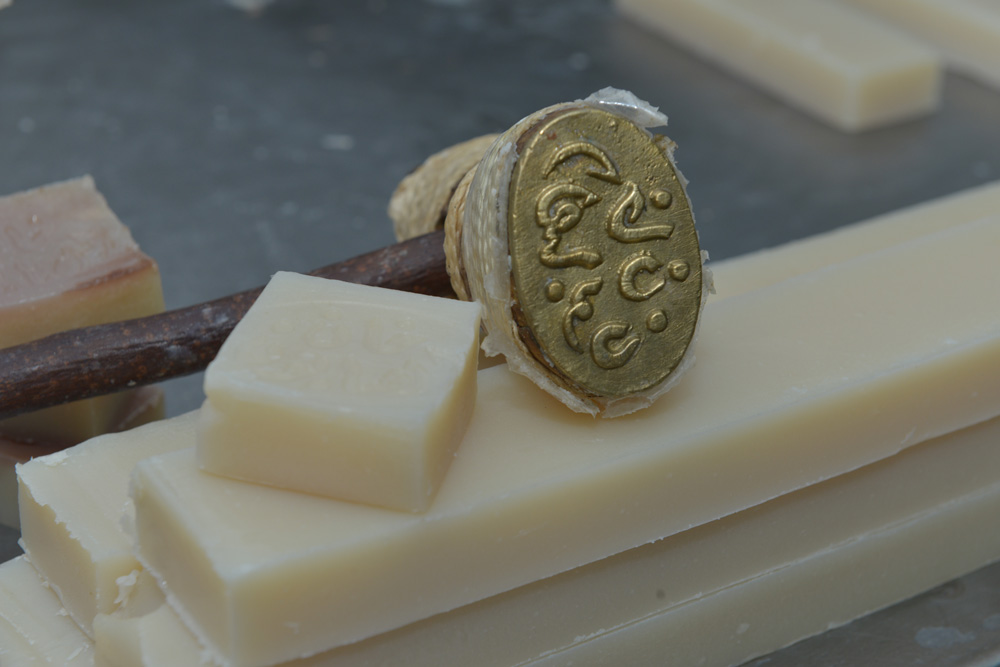A family run business takes an ancient soap-making tradition into the 21st century
In our world today people are starting to become extremely conscious about what they buy and consume, from synthetic materials or preservatives, and how to avoid them. Going back to nature and organic is not a mere trend but a direction more and more manufacturers are now taking. This direction, along with increased demand for soothing aromatherapy products, has allowed the traditional handmade soap industry to enjoy a kind of resurgence.
An Age-Old Tradition
One such brand that is doing remarkably well is Khan Al Saboun, which hails from Tripoli, north of Lebanon. Actually Tripoli is renowned for handmade soap or saboun baladi and its production of fine olive oil (the soap’s base ingredient). In fact according to historians, chemists from Tripoli were the first in the world to process soap. Traditionally, a bride was given a box of scented soaps before leaving for her husband’s house, as soap was considered a symbol of purity. However, this 600-year-old tradition began to die out, especially in the wake of the industrial boom, which introduced factory manufactured soaps, and the soap makers dwindled.
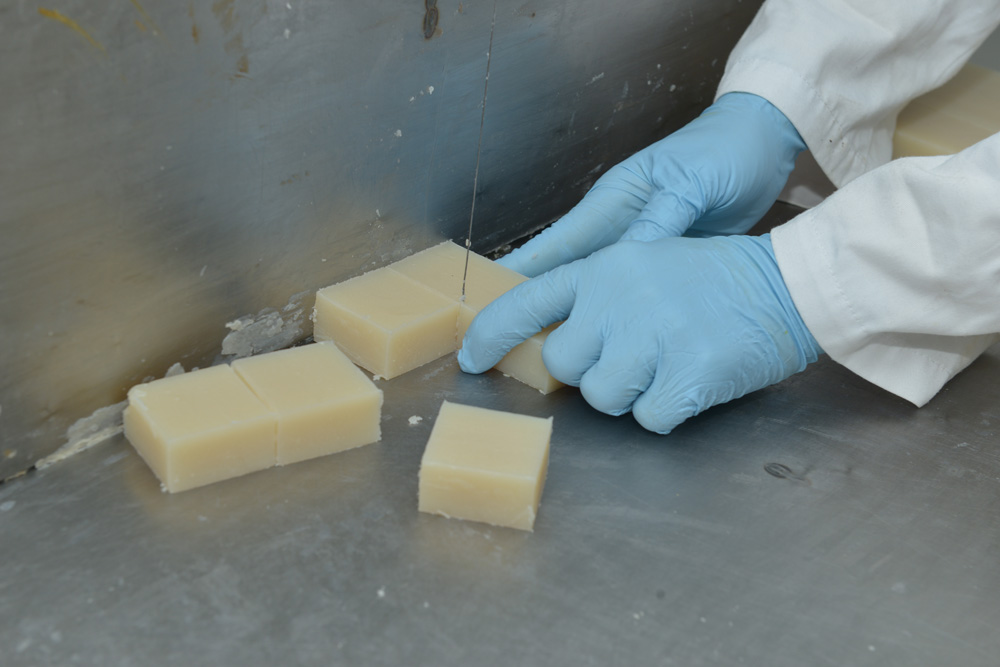
Cutting the soap into bars
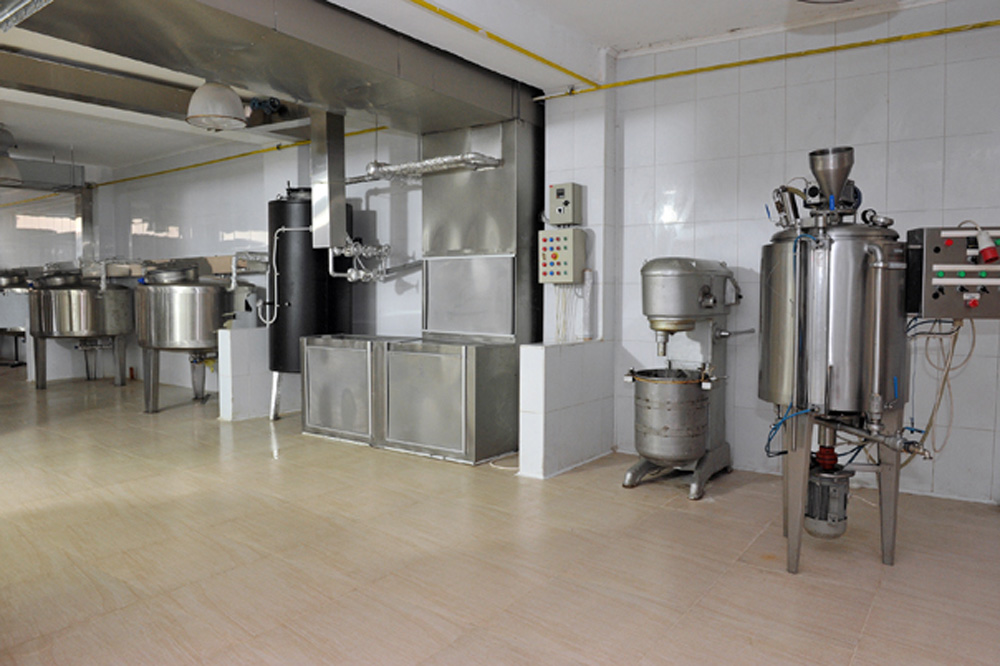
The stainless steel machinery for processing the soaps
Back To Business
Khan Al Saboun, founded in 1480, also ended when the commercially made soaps became much cheaper for the public and became fierce competition. The owner officially ended this family soap business in 1950 and switched to another industry. His grandson, Bader Hassoun, became a jeweller running his own store in the old Tripoli Souk. That however came to an end when a grand theft took place in 1985, leaving Hassoun with nothing but a large debt to pay, which took five bitter years. During this time, thanks to a serendipitous visit from a relative, the course of his life changed. His father’s uncle visiting from the USA convinced him to revive the family soap business and taught him what he knew. With little to lose and a passion in chemistry and botanics since childhood, Hassoun quickly learned all about the business and re-opened the soap factory in 1995.
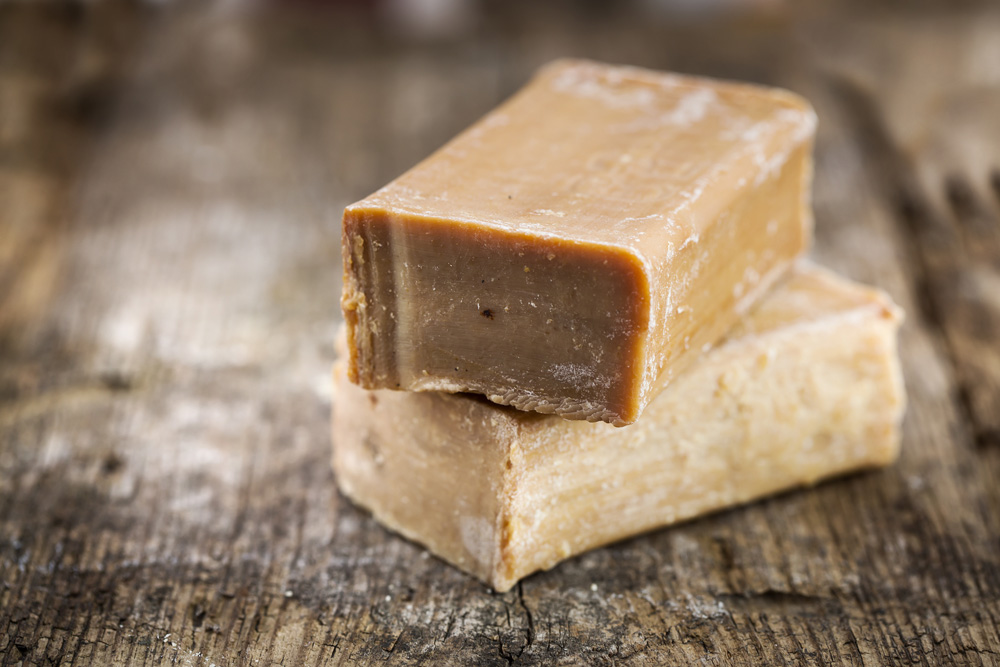
Easing Into Expansion
Today Hassoun exports 99.9 percent of his production and has over 200 points of sale. The Gulf countries and Europe constitutes a large market share and he also has distributors in Australia, Canada and the USA, who are in fact all his first cousins. High-end stores like Gallerie Lafayette in Paris and Harrods in London stock the brand just like some leading spas and pharmacies throughout Europe.
Hassoun’s business is unique in that his brand has expanded to also include cosmetics, following the same all natural ethos as his soaps. Body lotions, shampoos, salt scrubs, massage oils and many more items sit alongside his famous soaps infused with aromatic herbs like lavender, sage, chamomile, Damascus rose, lemongrass and much more.
“I like to experiment and try different combinations,” Hassoun says. “You need to give people new aromatic experiences, otherwise they get bored.” In fact he claims to produce more than 700 kinds of soap. His impressive manufacturing hub is now based in nearby Koura. A sprawling 15,000m2 compound that includes his office, the production and packaging site, his laboratory, gardens for growing some of his plants and herbs (rest are grown elsewhere or are imported), and his residence shared with 50 of his family members.
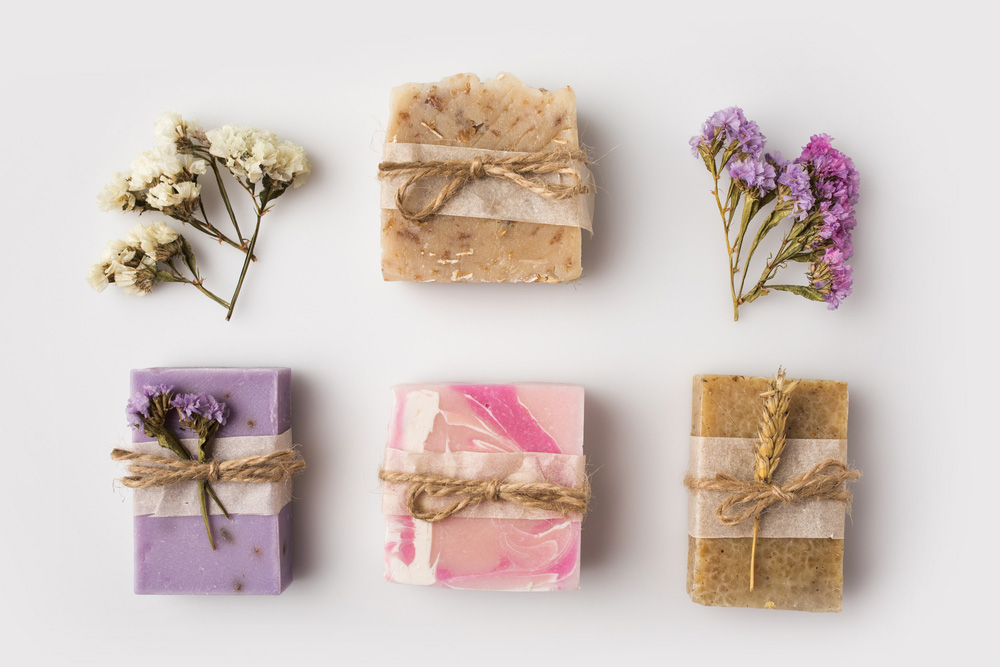
Naturally, It’s All Natural
While the base of the soaps is olive oil, lots of other natural oils are used which are extracted from their seeds, such as apricot, linseed, arugula, sesame and black seed. “I never buy readymade oils, I don’t trust what is put inside,” admits Hassoun. And when asked how his products last without the use of preservatives, he said it is because he has found ways to substitute them with the natural kind. “I use vitamin C, sage and other similar natural holding substances,” he says. Perhaps this is one of the many secrets of his trade stemmed from centuries old methods of his forefathers.
Khan Al Saboun is also constantly evolving, equipped with its own laboratory testing new ingredients and making new aromatic blends. All the thousands of vials sitting there are meticulously tested then thrown out after three years to make sure they last for that duration, which is the shelf life for many of his products.
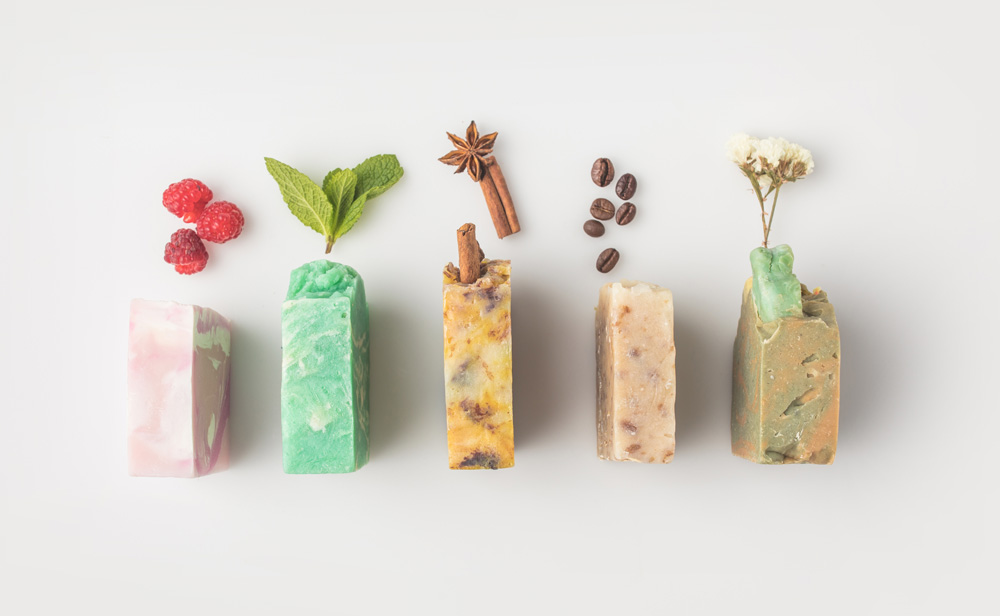
Keeping It In The Family
It probably helps that Hassoun partakes frequently in trade shows throughout the world and his naturally ebullient character and enthusiasm is a great marketing asset. However, his unique brand of fresh smelling natural soaps and cosmetics has quickly developed a strong following outside of Lebanon. Hassoun’s three sons have all joined the business today. Amir manages sales; Ahmed is head of production, while Ousama, who holds a Chemical Engineering degree, is in charge of the laboratory.
Along with many members of the Hassoun family, Khan Al Saboun employs around 100 people. Then there are another few hundred or so who are contracted throughout the country to either do the planting or picking of the raw materials or contribute towards other preparation tasks. The harvesting methods are all organic and raw materials are sourced only from organic suppliers as well.
BY ALIA FAWAZ
https://www.abouther.com/node/10946/people/features/soaping-it-all-khan-al-saboun
